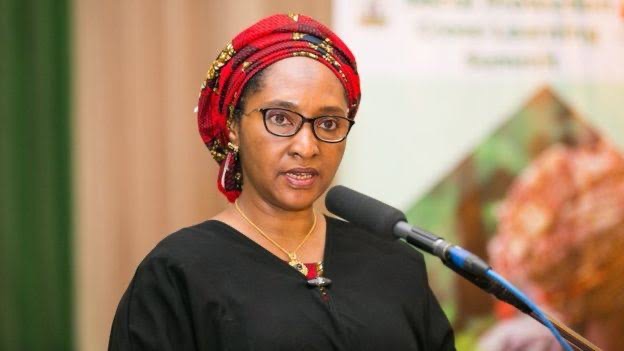The Minister of Finance, Budget and National Planning, Zainab Ahmed, has revealed that the assets of the Nigeria Sovereign Investment Authority (NSIA) increased from $1 billion in 2015, to $3.5 billion in 2021. This was as President Muhammadu Buhari charged the new board of the authority to make more investments to boost the country’s economic diversification drive.
Zainab spoke yesterday at the inauguration of the third board of NSIA at the State House, Abuja. She said from a base position of $1billion, when the Buhari administration assumed office in 2015, the NSIA now had about $3.5billion in assets.
The minister explained that the board would, on behalf of the Nigerian people, guide and oversee the NSIA management’s activities towards delivering outcomes that would transform the fortunes of the country.
She stated, “Using the NSIA Act as its guide, the Board will be required to superintend initiatives that meet the current and future needs of Nigerians.
“On our part as a government, we will continue to support the authority with the necessary policies and framework to ensure that the mission of the institution is delivered in a transparent, sustainable and inclusive manner.”
Speaking while inaugurating the nine-man board, Buhari reaffirmed his administration’s commitment to implementing long-term projects and programmes that create jobs for Nigerians.
The new board members are Farouk Mohammed Gumel (North-west), Non-Executive Chairman; Ike Chioke (South-east), Non-Executive Director; Babatunde Sobamowo (South-west), Non-Executive Director; Isiekwena Ikemefuna Louis (South-south), Non-Executive Director; Ali Goni Kadugum (North-east), Non-Executive Director; and Oniyangi Kabir Sulaiman (North-central), Non-Executive Director
Buhari stated that the full impact of most of the strategic projects started on his watch would only be felt long after he had left office. The president described the appointment of the board as a call to duty, action and performance, adding that they are eminently qualified for the job.
He said, “This government operates on the agenda for long-term change, which we all agree is inevitable. Change happens, whether you are ready for it or not. As representatives of the federation, you are required to continue to drive the performance of the authority to deliver benefits to all Nigerians.
“You must bear in mind that the National Economic Council, your Governing Council, and Nigerians as a whole will hold you accountable for this mandate. Periodically, you will be required to provide evidence of your stewardship at the Governing Council Meetings where your performance will be assessed.
“The bar before you is very high and all of us are counting on you to deliver. If you do, I assure you that government and, indeed, all Nigerians will be unflinching in their support for you.”
The president recalled that the NSIA, which is one of Nigeria’s premier economic institutions, was conceived to be a store of wealth that might be drawn upon in times of economic challenge, thereby encouraging external investors and lenders.
He expressed delight that so far the institution had discharged its mandate dutifully.
“This is why we prioritised the appointment of a new Board to ensure that the Authority does not lose steam and can continue to benefit from the oversight it needs to deliver on its mandate,” Buhari stated.
He added, “The new Board we assembled has a crop of seasoned, eminently qualified, and experienced professionals. We expect these individuals to bring their wealth of experience to bear, in the next phase of NSIA’s journey.”
Buhari also appreciated the last Board of Directors whose tenure ended in May 2021.
Acknowledging their commitment, dedication and contributions to the implementation of the objectives of the authority, the president said, “This distinguished group of patriotic Nigerians heeded the call to serve and deployed the best of their abilities to oversee the affairs of the authority on behalf of the nation over the last four years.”
The president stressed that the immediate past board guided the organisation through a critical stage of its existence and left it standing as a credible world-class institution that turned out consistently good results.
According to him, “This administration took the very difficult decision to invest for the long term. We avoided taking short cuts, knowing very well that the full impact of most of the projects we started will only be felt long after we have left office.”

